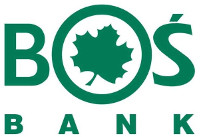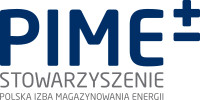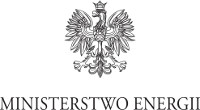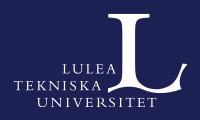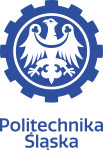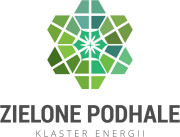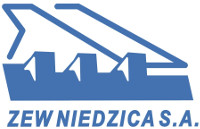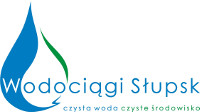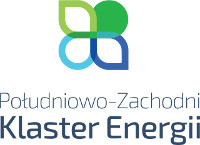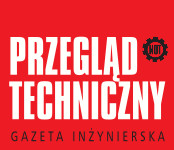| Article Index |
|---|
| Start |
| Photo gallery |
| Our Experience |
| Partners |

Let's be energetically self-sufficient - like the mitochondria
Nearly 150 guests took part in the 3rd edition of the Seminary "Energy clusters, cooperatives and virtual power plants in Poland", which took place January 30 in Warsaw. The vast majority of participants represented energy clusters, so the discussions during the meeting mainly concerned experiences and planned or implemented projects. Investors on the Polish renewable energy market are waiting for further auctions, but unfortunately it is not known when they will take place or what specific projects they will cover. We will probably find answers to questions about the date and scope of this year's auction only after the adoption of the next amendment to the RES Act, which is to clarify the rules for granting public aid in the new support mechanism for green energy producers. The problem is that the work on this amendment is again delayed and it is difficult to predict when it will be finished.
Regulatory support
During the speech, the representative of the Ministry of Energy pointed out that energy clusters fit into the ministry's strategy in terms of actions for the development of distributed energy. They are to contribute to: improvement of energy security, creation of added value in poorly urbanized areas, and effective use of locally available raw materials. Energy clusters will contribute to bridging the gap between cities and rural areas. The development of harvesting local energy will be particularly important. The speaker pointed out that the competition for pilot energy clusters is designed to simulate the development of the idea of energy clusters and identify investment needs. In addition, the Ministry expects the promotion of good practices, external verification of the strategy and the creation of a platform for the exchange of experience.
Representing the European Commission, Mikołaj Jasiak presented the importance of work on energy communities for energy clusters. Defining energy communities can simplify the implementation of solutions in the field of sharing economics and facilitate access to financing. The speaker underlined the positive role clusters can play in the Polish energy sector and ensured that clusters can count on support from the European Commission.
Representing the European Commission, Mikołaj Jasiak presented the importance of work on energy communities for energy clusters. Defining energy communities can simplify the implementation of solutions in the field of sharing economics and facilitate access to financing. The speaker underlined the positive role clusters can play in the Polish energy sector and ensured that clusters can count on support from the European Commission.
Sources of financing of cluster projects
In the middle of last month, the European Commission announced the approval of state aid rules in new support mechanisms that are to result in the granting of state aid - as calculated by the European Commission - amounting to PLN 40 billion.
During the panel discussion, one of the participants in the room put forward a thesis that the whole idea of clusters is pointless, because they are initiatives that would have no reason to exist without external support. The panelists did not agree with this opinion because - as they informed - they will continue the energy cluster projects regardless of receiving subsidies. Andrzej Wójtowicz, the CEO of Słupsk Waterworks, elaborated that energy clusters give an impulse to seek local opportunities for synergy, and external financing contributes to breaking a certain funding curve, which accounts for the acceleration of investment. According to Wójtowicz, the willingness to cooperate with local participants and to look for opportunities for synergy are more important than the financial guarantee.
In turn, Anna Żyła, the chief ecologist at BOŚ Bank, presented the possibilities of cooperation with a bank that assesses investments not only in financial terms - the impact of investments on the environment is also taken into account. BOŚ Bank offers a comprehensive financing offer, which may be a supplement to co-financing from other sources. It is currently the best offer for companies planning investments in the field of pro-ecological investments.
During the panel discussion, one of the participants in the room put forward a thesis that the whole idea of clusters is pointless, because they are initiatives that would have no reason to exist without external support. The panelists did not agree with this opinion because - as they informed - they will continue the energy cluster projects regardless of receiving subsidies. Andrzej Wójtowicz, the CEO of Słupsk Waterworks, elaborated that energy clusters give an impulse to seek local opportunities for synergy, and external financing contributes to breaking a certain funding curve, which accounts for the acceleration of investment. According to Wójtowicz, the willingness to cooperate with local participants and to look for opportunities for synergy are more important than the financial guarantee.
In turn, Anna Żyła, the chief ecologist at BOŚ Bank, presented the possibilities of cooperation with a bank that assesses investments not only in financial terms - the impact of investments on the environment is also taken into account. BOŚ Bank offers a comprehensive financing offer, which may be a supplement to co-financing from other sources. It is currently the best offer for companies planning investments in the field of pro-ecological investments.
Technologies in Energy Clusters
Joachim Bargiel, Mayor of Gierałtowice and Piotr Rzepka, adjunct of the Silesian University of Technology and Main Consultant of PSE Innowacje, presented an example of an active energy cluster - the Energy Cluster of the Mining and Agricultural District of Gierałtowice. Experts presented conceptual and technical facets, including (used in practice) combustion of methane in the cogeneration process from mines located in the commune. It is a solution that can contribute to better management of local raw materials, also reduce air pollution.
Robert Duszka from the NMG, Krzysztof Kołodziejczyk from PIIT, and Maciej Martyniuk from NCBR considered key energy storage systems. In the long-term perspective, they will enable easier achievement of many strategic cluster goals - in particular, they will improve balancing of supply, effective use of energy from renewable sources, and e-mobility systems. It is worth mentioning that some of the clusters have already invested in a fleet of electric cars and car charging stations. As one of the clusters' representatives pointed out, that cars and electric buses are charged when the demand for electricity is low, that is at night. Energy storage systems in combination with e-mobility and virtual power plants will become effective tools to "flatten" the demand for energy and effectively balance the entire cluster's energy system.
Dariusz Zych from the Energy Cluster Kraina Jeziorki stressed that energy efficiency is an important aspect of clusters, which is often overlooked. One of the easiest ways to save energy is more efficient use and reduction of losses. Also, energy clusters can take on the task of promoting pro-environmental attitudes. A model example of this is the energy cluster project of the Czorsztyn Reservoir, which involves the use of electromobility and electric bicycles as a means of locomotion for tourists visiting the region.
During the debate, attention was paid to the fact that energy clusters should be like mitochondria - use the energy they produce themselves. Currently, even 70% of the energy produced by the Niedzica Hydroelectric Complex does not leave their distribution network. Panelists also stated that energy clusters do not have to be defined as electricity systems. A sensible supplement may be cluster heat energy systems or kinetic energy obtained by pumped storage power plants. These systems can be an alternative to the storage of electricity.
The strategic partners of the event were companies:
Robert Duszka from the NMG, Krzysztof Kołodziejczyk from PIIT, and Maciej Martyniuk from NCBR considered key energy storage systems. In the long-term perspective, they will enable easier achievement of many strategic cluster goals - in particular, they will improve balancing of supply, effective use of energy from renewable sources, and e-mobility systems. It is worth mentioning that some of the clusters have already invested in a fleet of electric cars and car charging stations. As one of the clusters' representatives pointed out, that cars and electric buses are charged when the demand for electricity is low, that is at night. Energy storage systems in combination with e-mobility and virtual power plants will become effective tools to "flatten" the demand for energy and effectively balance the entire cluster's energy system.
Dariusz Zych from the Energy Cluster Kraina Jeziorki stressed that energy efficiency is an important aspect of clusters, which is often overlooked. One of the easiest ways to save energy is more efficient use and reduction of losses. Also, energy clusters can take on the task of promoting pro-environmental attitudes. A model example of this is the energy cluster project of the Czorsztyn Reservoir, which involves the use of electromobility and electric bicycles as a means of locomotion for tourists visiting the region.
During the debate, attention was paid to the fact that energy clusters should be like mitochondria - use the energy they produce themselves. Currently, even 70% of the energy produced by the Niedzica Hydroelectric Complex does not leave their distribution network. Panelists also stated that energy clusters do not have to be defined as electricity systems. A sensible supplement may be cluster heat energy systems or kinetic energy obtained by pumped storage power plants. These systems can be an alternative to the storage of electricity.
The strategic partners of the event were companies:
- BOŚ Bank Bank
- WAGO ELWAG
The technical partner of the meeting was the company:
- NMG
The legal partner of the Seminar was:
- Piszcz i Wspólnicy law office
The Exhibitors included:
- Globema
- National Centre for Research and Development




